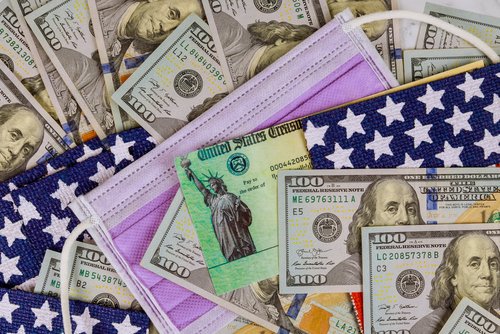Scammers use public health emergencies as opportunities for new fraud schemes. In fact, The Federal Trade Commission has already received complaints about stimulus checks scams.
As you may know, the government is preparing to distribute stimulus checks to help provide relief to households due to the COVID 19 crises.
Things you need to know:
- Individuals with adjusted gross incomes of less than $75,000 should expect to receive $1200 with couples receiving $2400, and $500 per child.
- The rate is adjusted if the gross income is more than $75,000. This will be based on your 2019 tax return, or 2018 if you haven’t filed yet for 2019. Please keep in mind that it is estimated to take weeks for these checks to be distributed.
- Your stimulus check will be directly deposited into your bank account if funds you received from your 2018 tax return were directly deposited. Otherwise your paper check will arrive by mail. Social security beneficiaries will automatically receive a stimulus check via direct deposit. There is no need to complete any tax information. The IRS will automatically use what the Social Security Administration has on file.
Scammers are already using this opportunity to steal the money coming your way or your identity by getting access to your personal information. Keep in mind; no one has early access to these funds!
Beware of the following scams:
- Fake Stimulus Checks. There are fake checks circulating right now. It will take at least three weeks for direct deposits to land and up to 10 weeks for paper checks to arrive by mail. If you receive any checks now, it is a fraud. Telltale signs are checks written in odd amounts or include cents, or a check that requires you to verify receipt online or by calling a number.
- Social media, phone calls, or text messages claiming to get in touch with you. Scammers are reaching out to people online on social media platforms or by sending text messages with claims they are from the IRS or other government agency and are trying to get in touch with you regarding your stimulus check. Ignore/Delete these messages. The U.S. Government will never reach out to you via any social media platform or by text.
- Scammers pose as a government agency and will send a link to this website or something similar for you to verify personal information. The government does not do this. The government already has the information they need and will not reach out to you for verification of your social security number or other personal identification.
- Processing Fee. Scammers pose as the IRS or other government agency claiming you can receive your stimulus check faster if you pay a processing fee. There is no such thing and there is no way to speed up the IRS payment process.
- The IRS will never call or email you to verify any personal information. This includes your social security number, bank account number, or anything that allows access to your identity.
- As soon as you receive a call or email saying they are from the IRS or U.S. Treasury, hang up or delete it. These scammers are professional criminals and will use a variety of methods to steal your personal identification and your money.
Texas SMP is ready to provide you with the information you need to PROTECT yourself from Medicare fraud, errors, and abuse; DETECT potential fraud, errors, and abuse; and REPORT your concerns.
Your SMP can help with your questions, concerns, or complaints about potential fraud and abuse issues. It also can provide information and educational presentations.
Texas Senior Medicare Patrol 1-888-341-6187

